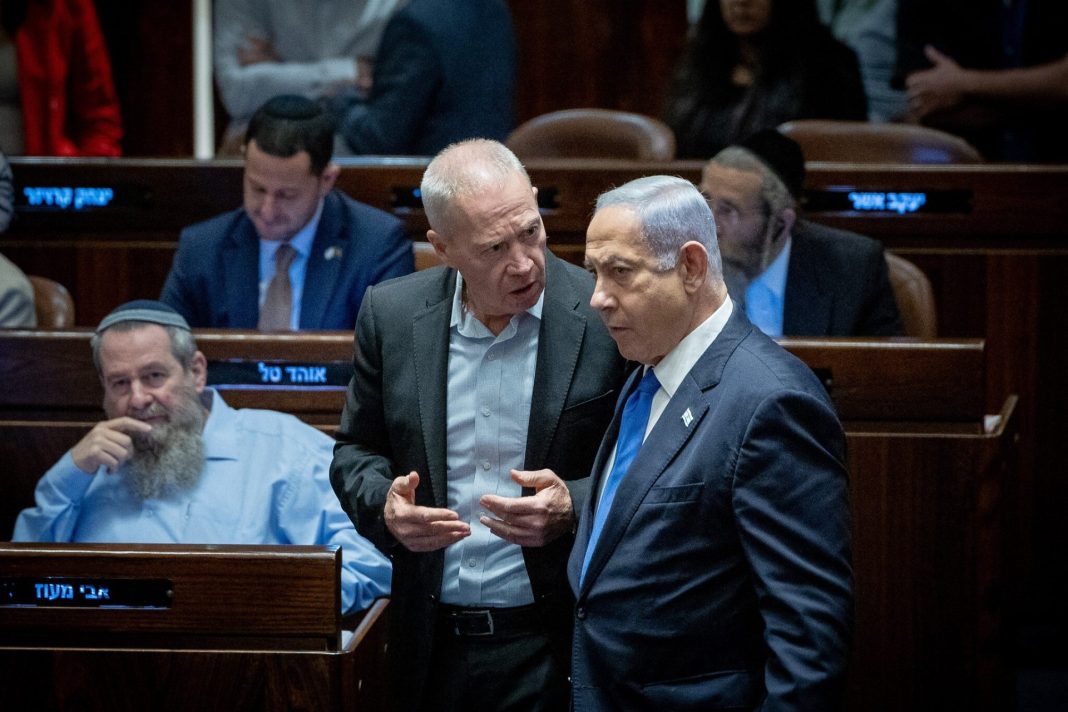The report said that the issue was brought up during a closed-door meeting when Gallant said: “The problem lies not with bringing supplies, but with who distributes it. Someone has to take the lead, and it is not going to be Sweden. It must be the Palestinian Authority.”
In response, Netanyahu is reported to have said: “I do not want to hear about the Palestinian Authority.”
Israel started its war on Gaza after the Oct. 7, 2023 cross-border incursion by Hamas. It has since killed more than 31,000 Palestinians, and pushed the territory to the brink of famine besides causing mass destruction and displacement.
The rift between Netanyahu and Gantz is said to have persisted for a long time, mainly over differences on the potential role of the Palestinian Authority, which administers the occupied West Bank, in governing the Gaza Strip after the war.
The US has also called for “revitalizing” the Palestinian Authority to take over in Gaza, a suggestion opposed by Netanyahu.
In an interview with Politico earlier this month, Netanyahu reiterated his opposition to putting the Palestinian Authority in charge of Gaza after the war ends, stressing that “the overwhelming majority of Israelis” agree with him and support his policies.
Tensions have also increased between Washington and Tel Aviv over Israel’s plans to invade Rafah, a city in the southern Gaza Strip, refusal to adhere to a two-state solution, and obstruction in the delivery of aid to the Palestinians.
A total of 25 non-governmental organizations (NGOs) operating in Gaza have called on governments worldwide to deliver humanitarian aid to the Strip by land, Amnesty International announced on Wednesday.
“States cannot hide behind airdrops and efforts to open a maritime corridor to create the illusion that they are doing enough to support the needs in Gaza,” the group emphasized, adding: “Their primary responsibility is to prevent atrocity crimes from unfolding and apply effective political pressure to end the relentless bombardment and the restrictions which prevent the safe delivery of humanitarian aid.”
People in the region have been “surviving with crisis-level hunger” for over five months, the organization indicated, adding it is the “largest proportion of any population in food security crisis ever recorded by the Integrated Food Security and Nutrition Phase Classification (IPC).”
It also criticized the capacity of airdrops, saying: “While a convoy of five trucks has the capacity to carry about 100 tons of lifesaving assistance, recent airdrops delivered only a few tons of aid.”
“Airdrops can also be extremely dangerous to the lives of civilians seeking aid: there have already been reports of at least five persons killed from free-falling aid packages in Gaza,” it noted.
It is essential for aid deliveries to be person-centered, enabling accurate evaluation of the affected individuals’ requirements while also revitalizing hope and dignity among a population already grappling with trauma and despair, it warned.
“After enduring five months of continuous bombardments and dehumanizing conditions, children, women and men in Gaza have the right to more than meager charity dropped from the sky.”
